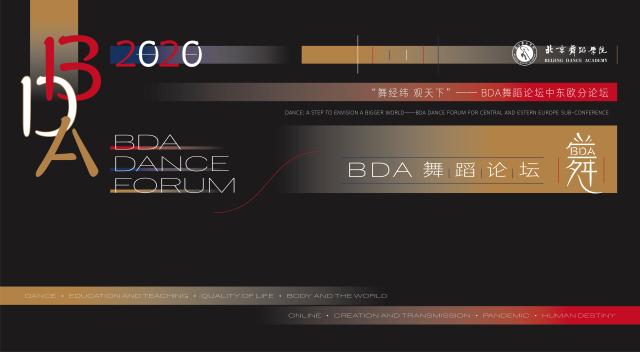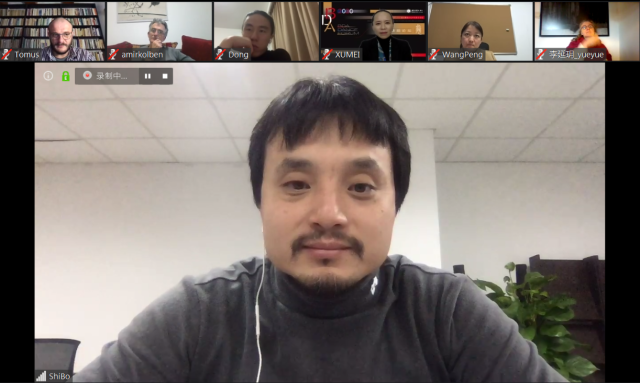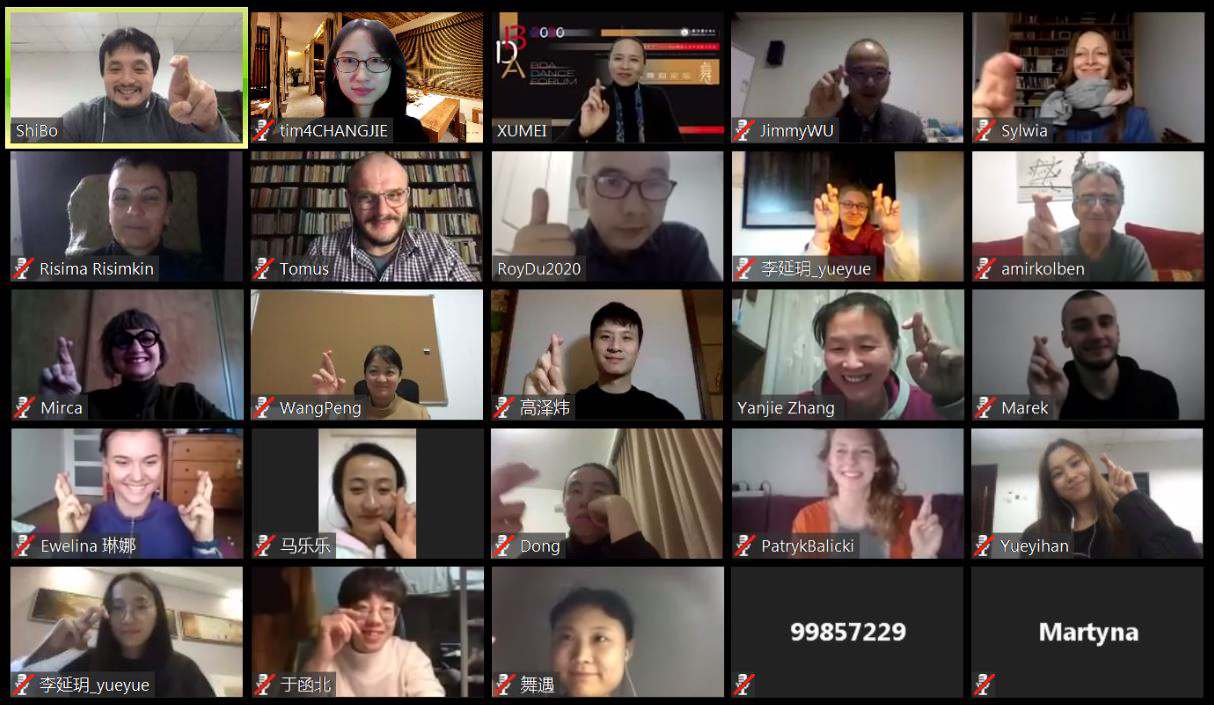[BDA Dance Forum 2020] Session for CEECs: DANCE: A STEP TO ENVISION A BIGGER WORLD
Date of issue:2020-11-05

On November 2, the BDA Dance Forum 2020 held a special session with dancers, professors and choreographers from Central and Eastern European Countries "DANCE: A STEP TO ENVISION A BIGGER WORLD" online. The session invited experts and scholars from Poland, Romania, Hungary, Israel, Macedonia, and Slovakia for thematic discussions. Guan Xin, Cultural Counsellor of the Chinese Embassy in Bulgaria, attended the forum. The online forum attracted teachers and students from dance academies and universities from Poland, Macedonia and other countries and regions.


The session was chaired by Shi Bo, associate professor of BDA’s School of Education, and Zhang Yanjie, deputy editor-in-chief of the the Journal of Beijing Dance Academy. A total of 9 dance scholars, teachers and choreographers from China and Central and Eastern European countries delivered speeches. As the moderator of this session, Shi Bo first expressed sincere thanks to the guests and audience for participating in the session. The session was divided into three parts, namely "Cloud Teaching", "Multimodal Dance" and "Dance in Society".

Speaking first in the first half of the forum was Miroslava Kovarova, Head of Dance Department, School of Performing Arts, Bratislava, Slovakia. She raised a series of questions about dance education under the topic "Reflection and Prospect: What Opportunities and Challenges Do Dance Education Face?" and noted that in dance education, the use of new technologies will help adapt teaching content to novel teaching methods, and assign research tasks to students based on digital resources to achieve more active and creative learning. At the same time, Miroslava also highlighted the three major challenges facing dance teaching under the current global pandemic, namely, the lack of on-site experience, the transformation of dimensions and the limitation of space. Mr. Ionut M. Tomus talked about the influence of Sibiu Art Festival on the teaching of dance major in Sibiu University, and explained the importance of folk dance to Sibiu University and the reasons behind. Professor Xu Mei from Yunnan Art University of China believes that it has become a necessity now to properly develop and utilize modern information technology and promote the construction of online courses in view of the large-scale online education practice. As a core course that runs through the whole process of national folk dance training, how to adapt to changes in the education industry under the pandemic, break through the limitations of the traditional teaching mode, make full use of high-quality educational resources, explore a new teaching mode of ethnic folk dance network courses, and realize resource sharing are all issues worth discussing. After the three speeches, Risima Risimkin, full-time professor of University of Goce Delchev, made brief comments on the three speeches. The speakers and the participants also discussed issues related to the teaching and performance of European folk dances.

In the second half of the session, Associate Professor Wang Peng of Guangdong Vocational Collage of Dance and Drama spoke about "Dance Workshop", which, according to her understanding, should feature "Participation, Process, Diversity, Dialogue, Establishment and Happiness". By sharing her personal experience of participating in the China-CEEC (17 +1) Summer Dance Camp, she shared her insights about innovation and win-win cooperation facilitated by various workshops. As an active artist, Amir Kolben, Head of Dance Department, Jerusalem Academy of Music and Dance, Israel, talked about the online dance works he released during the pandemic, and explored the challenges he encountered and the artistic solutions to re-establish dance as a live performing art. The second half of the meeting further led the discussion to the practical level of how dance art should connect with the world through the body. The speakers held in-depth discussions on the "Online World" and agreed that although digital methods can expand the thinking and vision of dance creation and choreography, how the pandemic will affect the dance performing arts industry remains largely unclear.


In the third half of the session, Wu Changti, deputy director of International Office, Zhejiang Conservatory of Music, gave a detailed introduction to the artistic cooperation and exchange activities between Zhejiang Conservatory of Music and China-Central and Eastern European countries as an academic platform. Sylwia Hefczynska - Lewandowska, head of the Dance Theatre Department, AST National Academy of Theatre Arts in Krakow, Poland, discussed the "paradox of barriers created during the pandemic". Using her work "Springlessness" created during the pandemic as an example, she expounded on her feelings and ideas in the creation process. Gao Zewei, teacher of Affiliated Secondary School of BDA, believes that the new situation has put forward new requirements for the development of dance, and the change of teaching environment has posed challenges to "teaching and learning". Mr. Gao Zewei took the Chinese dance course "Basic Training Course for Male Students" in secondary vocational schools as an example. By comparing with the traditional teaching mode, he analyzed the teaching plans, teaching methods, and evaluation standards of professional practice courses as they move online, and shared his personal understanding, challenges and solutions. Risima Risimkin, full-time professor of University of Goce Delchev, discussed the problems faced by dance and performing arts during the pandemic, and pointed out that the challenge is to find new forms of dance performance and their relationship with dancers and audience.
Finally, Zhang Yanjie briefly summarized the key points of the speeches. She looked forward to progress and more achievements in dance culture and art exchanges between China and Central and Eastern European countries in the future. Guests from participating countries expressed their full appreciation and recognition of the significance and value of the session, believing that the forum played an important role in strengthening the exchange and communication between dance teachers, choreographers and dancers from China and Central and Eastern European countries during the pandemic.

The session provided a platform for dance educators and practitioners in China and Central and Eastern European countries to share their works and voice their thoughts. It fully demonstrated the creativity and vision of scholars, educators and dancers regarding the future of dance development, and inspired new perspectives through the exchange of ideas.
(Conference Promotion Group Text / Le Yihan, Li Yanyue Photo / Network Information Center)



